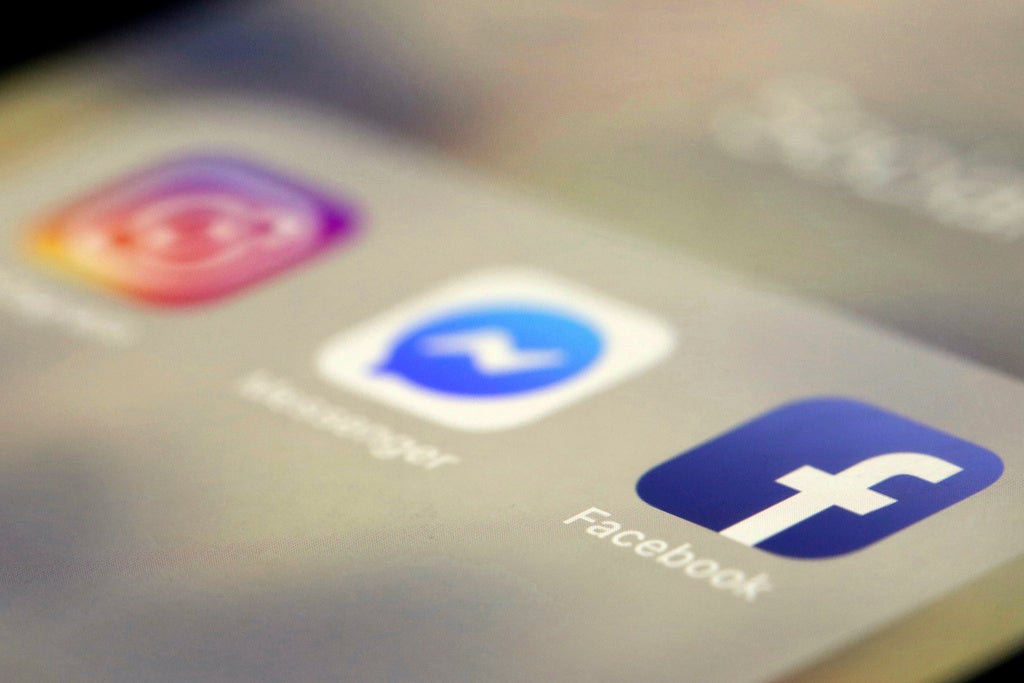Nearly 40% of young Americans get their news from social media influencers
New York (CNN) — Young American adults are increasingly getting their news from social media influencers, a majority of whom are men and lean to the right, according to a new study from the Pew Research Center.
While one-fifth of US adults reported “regularly” receiving their news from online “news influencers” who post about current events, that number climbed to nearly 40% of young adults aged 18 to 29, the study published Monday found. Among those who get their news from influencers, 65% said it helped shape their understanding of current events and civic issues.
The Pew study, which analyzed 500 popular news influencers with more than 100,000 followers and surveyed 10,658 Americans about their news consumption, was conducted across three weeks in July and August during the run-up to the presidential election. During the campaign, social media influencers and podcasters such as Joe Rogan and Alex Cooper played a key role in voter outreach efforts by Vice President Kamala Harris and former President Donald Trump, the latter of which courted so-called manosphere influencers to appeal directly to male voters.
“News influencers have emerged as one of the key alternatives to traditional outlets as a news and information source for a lot of people, especially younger folks. And these influencers have really reached new levels of attention and prominence this year amid the presidential election,” Galen Stocking, a senior computational social scientist at the Pew Research Center, said in a statement. “We thought it was really important to look at who is behind some of the most popular accounts — the ones that aren’t news organizations, but actual people.”
The study found that contrary to claims of right-wing censorship, news influencers were more likely to lean conservative, with 27% explicitly identifying as Republican or pro-Trump, compared to the 21% who identified as liberal. On Facebook, there were three times as many explicitly conservative news influencers (39% to 13%), and on Instagram conservatives outnumbered liberals, 30-25%.
“Many Republicans have long believed that social media sites censor conservative viewpoints. But overall, more news influencers explicitly present a politically right-leaning orientation than a left-leaning one in their account bios, posts, websites or media coverage,” Pew said.
Most news influencers have never been employed by or associated with a news outlet, with 77% reporting they have no past or present affiliation with a news media organization. The study found that influencers affiliated with a news organization were less likely to express a clear political lean, though when they did express a political orientation, they were more likely to link to right-leaning news organizations.
Social media influencers differ from trained journalists in how they report facts, often weaving their own views into current events or presenting opinions as reportable facts. Where news organizations have clearly delineated sections dedicated to reporting and opinion, news influencers often produce single products such as podcasts and newsletters that fail to distinguish the types of information being presented to their audience.
In the final months of the election, political content shared by news influencers took on paramount importance for the campaigns, with influencers leveraging their massive, built-in follower bases to engage with undecided voters. Unlike political TV ads, news influencers are not required to disclose whether they’ve been paid by a candidate to discuss an issue or share an opinion.
Though both candidates harnessed influencer sit-downs, President-elect Trump opted to almost exclusively engage with friendly news influencers who failed to challenge him on his political track record and potential policies, providing millions of young voters with a mostly glowing impression of Trump as a candidate.
Pew found the news influencer space was dominated by men, with 63% identifying as male compared to only 30% identifying as female. The gender gap was found across most social media platforms, including YouTube, Facebook, X, and Instagram, where men outnumbered women two to one.
The study found that TikTok had the smallest gender gap among the platforms and was the only one where conservative influencers did not outnumber liberals, with news figures on the Beijing-based video platform more likely to show support for LGBTQ rights.
In the wake of the election, many social media users and prominent figures have fled X after the platform’s billionaire owner Elon Musk openly embraced Trump and spread misleading election claims that were viewed more than 2 billion times. X competitor Bluesky has since nabbed the top spot on Apple’s App Store, buoyed by millions of new sign-ups.
